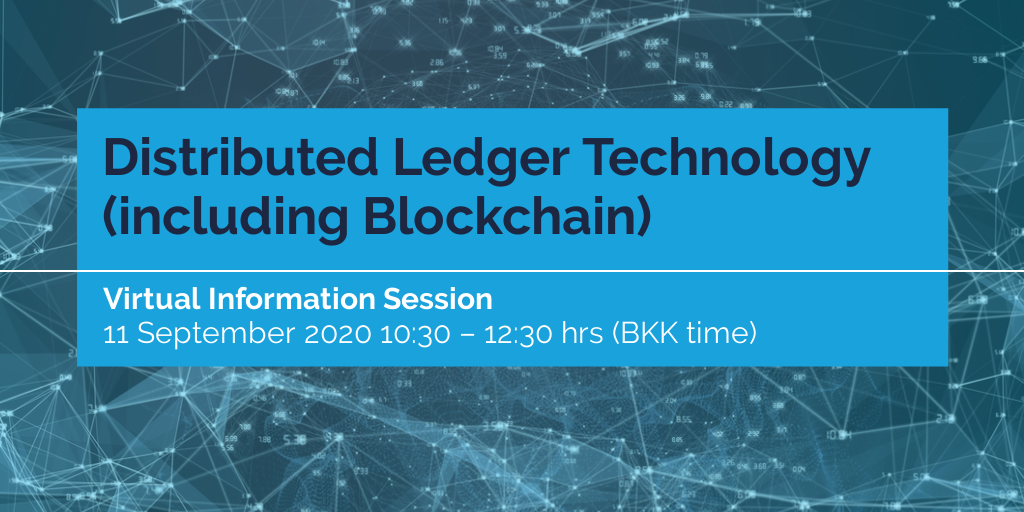
This virtual information session on “Developing Institutional Capacity: Virtual Information Session on Distributed Ledger Technology (including Blockchain)" organised by ITU & IBM on 11 September 2020, is intended to provide fundamental overview, concepts, applications and use cases of blockchain technology for ICT professionals, policymakers and academicians.
As a result of the COVID-19 pandemic, government and businesses are increasingly reliant on technology. ITU has organised numerous sessions to support various stakeholders on intermediate to advance discussions on how distributed ledger technology, including blockchain, a type of distributed ledger, can help governments can use this technology to help a population in crisis. The ITU has carried out a number of activities in relation to DLTs including ITU-T Focus Group, ITU-T Study Group, technical reports, awareness raising and skill building, and development of DLT based solution.
The opportunity to create value from this technology is immense, as it is noted that over 1 billion persons around the world do not have a foundational identity. The DLT technology has shown potential on multiple uses in a financial inclusion context, as a supervisory technique for regulators and to secure identities that can be used to access funds and credit.
The Financial Action Task Force (FATF) has also called on countries to explore using digital identity solutions, as appropriate, to aid financial transactions while managing money laundering and related risks during this crisis. Despite calls to explore the benefit of this technology, the primary inhibitor to enabling consistently secure access controls is the exponentially increasing complexity of different Identity Services.
Moving forward, do governments have adequate resources to explore the benefits and implement this technology at the national level? Further do governments have the enabling policy and regulatory frameworks to enable easy adoption and use of this technology?
It is hoped that the session will serve as an impetus for the Member States to explore this technology further in the context of the new normal to support socio-economic sustainability.